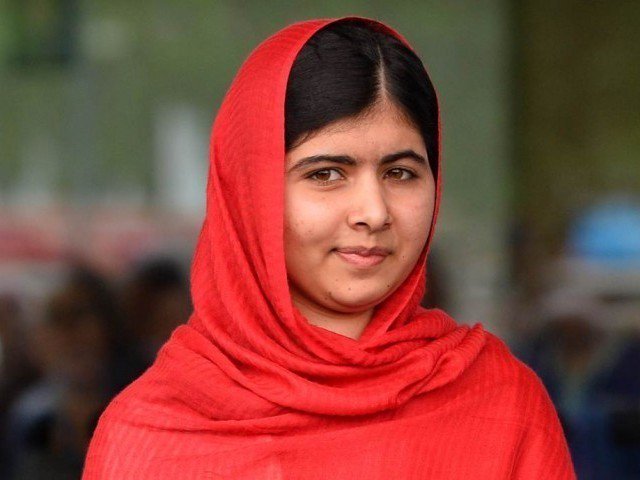Malala Yousafzai, a vocal human rights activist and a winner of Nobel Peace Prize, Thursday, returned to heroic welcome in Pakistan, her country.
Ms Yousafzai arrived at Benazir Bhutto International Airport flanked by heavy security in the early hours of Thursday morning, CNN affiliate Geo TV reported.
News of her surprise arrival made instant headlines in Pakistan, where many see Malala as a hero, but others consider her an agitator who should be silenced.
Yousafzai shot by Taliban militants in the head by a gunman for campaigning for female education in 2012 returned to Pakistan for the first time.
The trip is expected to last four days. Officials from her Malala Fund group are travelling with her, local media report.
It has not been confirmed if she will visit her family’s home region of Swat in the country’s rural north-west – once a militant stronghold – during her visit.
In an emotional speech at the prime minister’s office, Ms Yousafzai said it had been her dream to return “without any fear”.
“Always it has been my dream that I should go to Pakistan and there, in peace and without any fear, I can move on streets, I can meet people, I can talk to people,” Ms Yousafzai said in a televised address from the PM’s house in Islamabad.
“And I think that it’s my old home again… so it is actually happening, and I am grateful to all of you.”
Pakistani television broadcast video showing her arriving with her parents at Islamabad’s Benazir Bhutto International Airport under tight security.
In her hometown of Mingora, locals were excited to hear of Yousafzai’s return to Pakistan, saying they hoped she would make the 250-kilometer (155-mile) trip from Islamabad to visit them in the Swat Valley.
“She should have come back much earlier, we welcome her, she is the pride of the world, why wouldn’t she be ours as well?” said Niaz Ahmed, a friend of Malala’s father.
“Her courage is an example for education in a place called Swat. She defeated fear in Swat.”
Faryal Niaz, a 16-year-old student at the Khushal Model School, where Yousafzai studied before she was shot, said Malala was her idol.
At just 11, Ms Yousafzai began writing an anonymous diary for BBC Urdu about her life under Taliban rule.
She later became a vocal advocate of female education amid militant suppression in Pakistan, and was deliberately attacked on a school bus at the age of 15. Malala’s story brought international attention.
The Pakistani Taliban said at the time that they had shot her because she was “pro-West” and “promoting Western culture in Pashtun areas”.
In 2010 a Pakistani court jailed two men for life for involvement in the attack on Ms Yousafzai. Eight others were acquitted. The man named as the chief suspect is still on the run, the authorities say.
The United Nations launched a campaign for girls’ education named “I am Malala,” which former UK Prime Minister Gordon Brown guided as special envoy on global education. And it declared November 10 Malala Day — a day of action to focus on “Malala and the 32 million girls like Malala not at school.”
Yousafzai founded the Malala Fund, which invests in local educational initiatives for girls in Pakistan, Afghanistan, Nigeria and Kenya, and in Jordan, where it focuses on Syrian refugees.
In 2014, she was awarded the Nobel Peace Prize jointly with Kailash Satyarthi for activism on behalf of children’s rights.
She began studying at Oxford University in the UK last year, but in her most recent public interview, she told talk show host David Letterman about how she missed “the rivers and mountains” of her home in Swat Valley and all she wanted was for her “feet to touch the ground of home.”

